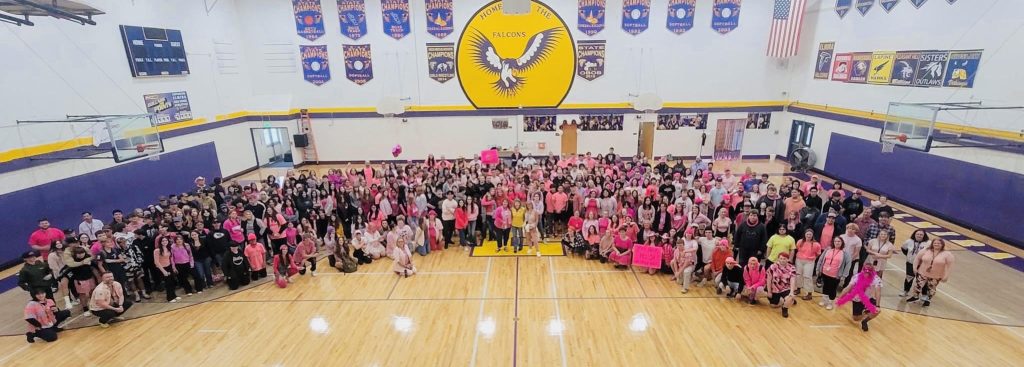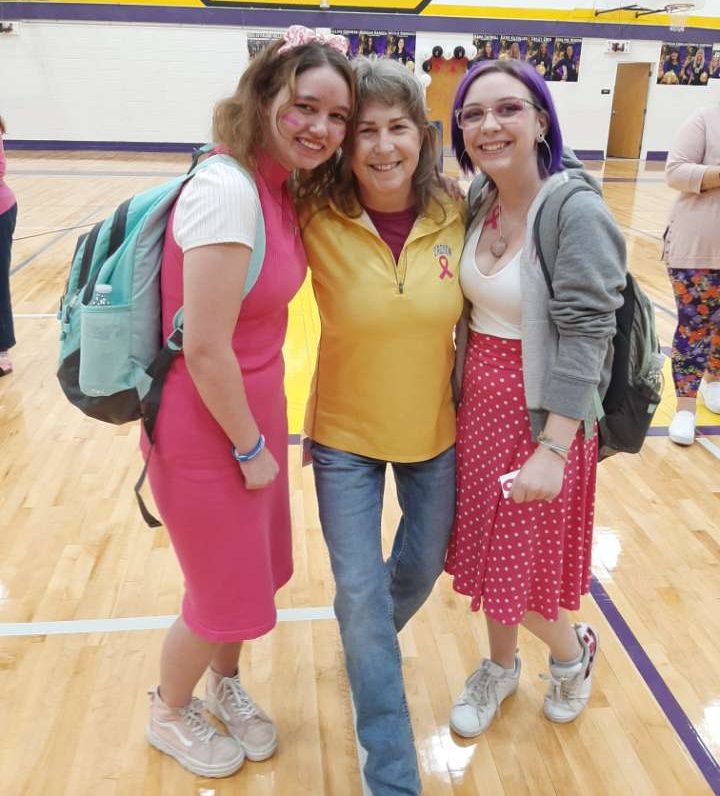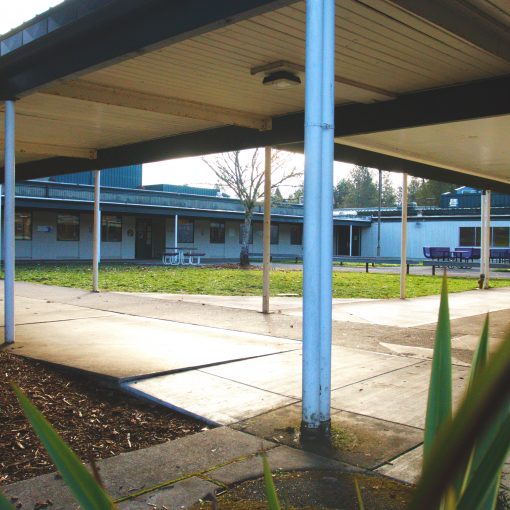
EHS science teacher Debra St. Hilaire, who was diagnosed with cancer in June, says she’s still looking on the positive side to show students how to stay strong even in tough situations.
St. Hilaire, known to students and staff as Ms. Saint, recently gave an update to Falcon News.
Saint had gone to the doctor in June, where she was told her she had cancer in three regions of her body — in a lymph node below her right breast; in her L2/3 lumbar vertebrae, where the L2 vertebrae had cancer spreading across the top and through the bottom side; and in her sacrum in the lower back, where tumor masses expanded to the left and right sacrum and the sacral canal. The neurons from the spine traveled to her legs and lower abdomen.

Saint described the radiation process she endured.
“I finished radiation … and my skin is still very burned,” Saint told Falcon News. “The internal repairs are ongoing with energy loss causing serious fatigue nearly every day. While targeting my sacrum, the lower abdomen experienced some short-term damage, and I’ll have intestinal irregularities for a bit longer.”
The radiation process is called photon radiation, and it is the most common type of radiation treatment. It uses high-energy X-rays that damage the DNA inside the cancer cells. Damaging the DNA renders the cells to be unable to copy themselves, which results in cancer death.
Radiation healing takes weeks to months, and Saint said she has had more severe side effects from the radiation.
The process of locating the cancer cells is through PET scans. Patients must fast for six hours and then get injected with radioactive glucose. After the injections, patients must sleep in a dark room for an hour to allow their metabolism to calm down. After waking up, the regular cells stop consuming glucose and the cancer cells continue consuming the glucose. That makes them appear as bright spots on the scans that make it easier to identify the cancer cells.
With high hopes of the current chemo working, Saint explained that she will have to return to the clinic for the drip line if it doesn’t work, which would result in her losing her hair and limiting her travels.
Currently, Saint is on a medicine called Xometa, which is a less aggressive form of chemo. It is categorized as “systematic” or “agnostic,” meaning it should damage all forms of cancer without discrimination, and it allows her to go on road trips, go on adventures, and keep her hair and her smell.
Wile describing her medicine, Xometa, Saint said,“That also means it should work throughout the body (on whatever cancers are present).”
Although the situation is tough, Saint said she is surrounded by people who love and care about her and she has a great support system alongside her. Her four siblings recently flew in for a week to visit with her.
“It makes me so deeply happy to know they’ll finally breathe in our air and take in our mountains and ocean, trails, rivers — all of our beautiful country,” she said ahead of the visit.
Check back with Falcon News for further updates on Saint.




